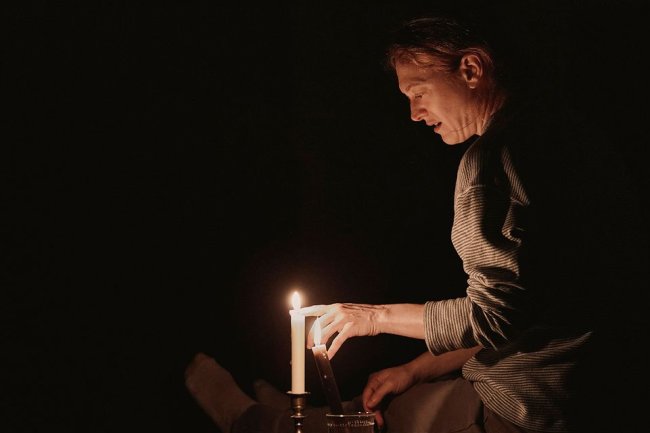A Hollywood-Detroit Crackup
Strikes threaten two of America’s once-seminal industries. By Holman W. Jenkins, Jr. Sept. 5, 2023 5:45 pm ET SAG-Aftra actors and Writers Guild of America writers walk the picket line outside Walt Disney Studios in Burbank, Calif., Aug. 22. Photo: MARIO ANZUONI/REUTERS As one of 14 million Americans who saw their Disney-owned channels disappear from cable over the weekend, I naturally yawned and wondered why my broadband carrier bothers still to offer a cable channel bundle. This insensitivity on my part admittedly overlooked the hair-tearing of sports fans who lost a crucial weekend of college football, a Yankees game, the U.S. Open tennis championship, and a Formula One race from Monza, Italy. Call it an end-of-summer reality check for reality’s refuseniks. The phenomenon can be seen


SAG-Aftra actors and Writers Guild of America writers walk the picket line outside Walt Disney Studios in Burbank, Calif., Aug. 22.
Photo: MARIO ANZUONI/REUTERS
As one of 14 million Americans who saw their Disney-owned channels disappear from cable over the weekend, I naturally yawned and wondered why my broadband carrier bothers still to offer a cable channel bundle. This insensitivity on my part admittedly overlooked the hair-tearing of sports fans who lost a crucial weekend of college football, a Yankees game, the U.S. Open tennis championship, and a Formula One race from Monza, Italy.
Call it an end-of-summer reality check for reality’s refuseniks. The phenomenon can be seen in contract fights now roiling Hollywood and that harbinger of Hollywood’s future, the Detroit of the formerly dominant U.S. auto industry.
In essence, Charter, the country’s second biggest cable operator, with a key presence in the New York City and Los Angeles markets, announced it no longer wants Disney using its last, stickiest cable subscribers as a cash cow to cover Disney’s streaming losses while Disney also shifts its best content to its streaming affiliates and bombards Charter’s cable suckers with ever more commercials.
To draw an even finer point, the last prop of the cable bundle is sports. Disney is trying to extract every last dollar from dwindling cable viewers for its big investment in sports rights. Hence Charter’s daring decision to black out ABC, ESPN, FX and other Disney-owned channels and indicate it would be fine if they never came back.
This lands as Hollywood’s labor strike settles into its own bloody-minded phase, with actors and writers realizing they have no strategy except a wish that the world go back to pre-streaming days. Not usually a stupid newspaper, the Los Angeles Times recently accused studio and cable execs of heedlessly throwing away the lucrative pre-digital industry structure of the 1990s. They “blew up a successful business model that the public enjoyed, that was immensely profitable,” the paper said.
This is ridiculous. Hollywood CEOs can’t put the streaming genie back in its bottle any more than they can fix the unmentionable governance failures that make Los Angeles unaffordable for the industry’s middle-class workers.
Charter at least can speak cogently about the transition because it sees a happy future providing broadband and wireless connections.
Disney, in denial, blathers about Charter customers being deprived of Disney’s “unrivaled content.” In fact, Disney’s content is quite rivaled: Its movies had a terrible year. Its TV channels see plummeting viewership. Young people are more interested in what’s on YouTube, TikTok and Instagram. Actress and activist Justine Bateman let the cat out of the bag. Studios increasingly want “visual Muzak”—shows that don’t require consumers to look up from their phones. An Indiewire deconstruction of Netflix’s “Heart of Stone,” with supermodel Gal Gadot, highlights the movie’s reliance on clunky dialogue to alert viewers to plot twists while their eyes are elsewhere.
Read More Business World
- Maui Sees Off the Climate-Change Ambulance Chasers September 1, 2023
- Prigozhin’s Death Leaves Putin Weaker August 29, 2023
- Why Our EV Policies Are So Extremely Stupid August 25, 2023
It gets worse. In an algorithmic world, what kind of content still feels authentic and engaging, yet is suited for a second-screen experience and also happens to be advertising-friendly? That’s right, sports. Expect coveted sports rights increasingly to be snapped up by the deepest-pocketed, most technologically adept players, Amazon and Apple,
leaving Disney and other traditional players in the dust.Hollywood CEOs at least can say they’re responding to organic waves of technological and consumer change. In threatening its first-ever simultaneous strike against Ford, GM and Chrysler, the United Auto Workers union is leveraging realities that are the opposite of organic. The union’s unnatural status as a single-source, monopoly labor supplier to homegrown U.S. auto makers is one. Another is the tens of billions of U.S. government dollars flowing into electric vehicles, via direct tax handouts and also via hidden fuel-economy subsidies funded in the last analysis by America’s longstanding 25% tax on imported pickup trucks.
Never mind that car makers still lose billions on their EVs. That’s not a problem for the UAW, it’s a problem for a future president and Congress in constructing the next industry bailout. The union concerns itself only with getting a share of the current largess. Example: It wants do-nothing wages for workers displaced by EVs, in a replay of the “jobs bank” of the 1990s, the UAW’s price for allowing robots on the factory floor. In a sense, the union is gaming here the Biden administration as much as the auto makers.
Detroit’s foreign competitors, meanwhile, pursue economic sustainability for their U.S. factories the old-fashioned way, by hiring workers who are loyal and productive, at a wage that reflects their productivity and the competitive opportunities available to them in the marketplace. Guess which companies now constitute the lion’s share of U.S. domestic auto production? It isn’t the Big Three.
If Hollywood, as both a place and industry, doesn’t want to end up in the same fix as Detroit, and soon, its workers need to take off their beer goggles with respect to the current strike. They need to realize some technological and consumer realities aren’t under anybody’s control.
With streaming disrupting the economics of the TV and film industries, it doesn’t help to alienate your audience with political posturing like Disney has with its refashioning of classic fairy tales including the upcoming 'Snow White.' Images: Disney/Shutterstock/Bloomberg News/Getty Images for CAA Composite: Mark Kelly The Wall Street Journal Interactive Edition
What's Your Reaction?

















